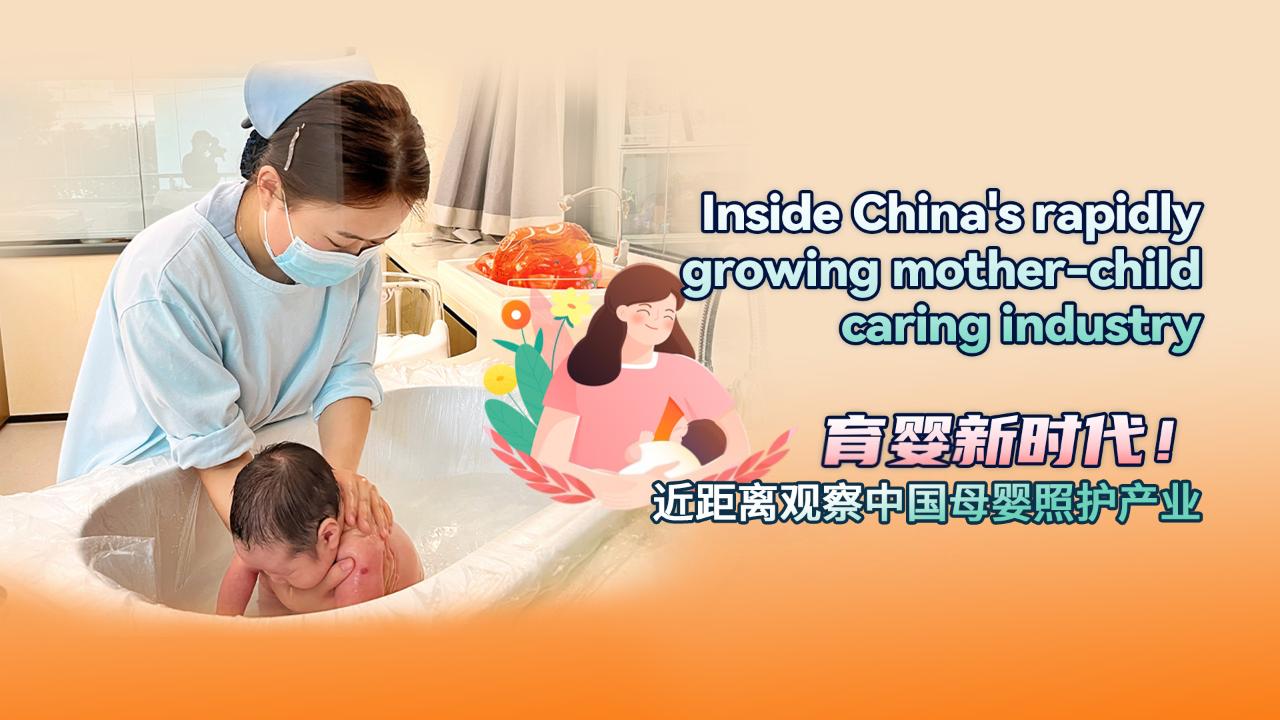INSUBCONTINENT EXCLUSIVE:
Soon after the birth of her second child, Cao Minrui decided to check into a private postpartum care center, nestled in a peaceful park
surrounded by nature.There, her newborn was pampered by professional maternity nurses and nannies so that she could get enough rest
She didn't just rest; she ate six carefully crafted meals a day to boost her breast milk, attended psychological counseling, joined reading
clubs, did recovery exercises under guidance and even received beauty treatments.In modern China, the postnatal recovery period, known as
zuoyuezi or "sitting the month," has evolved beyond the traditional strict confinement of 30 to 60 days
Today, it incorporates scientifically grounded postpartum care to help mothers restore both their bodies and minds."When I had my first
child, I was completely a novice
I didn't know what to do when my baby spit up or choked on milk, and I struggled with frequent bleeding from my breasts," Cao recalled
She had her first baby eight years ago and recovered in the same care center, where she learned critical parenting skills like baby bathing,
baby massage and how to heal faster.Today, as China's economy grows and people's consumption concepts upgrade, many are turning to more
scientifically grounded postpartum care
In the past, this recovery phase was often managed by the mother-in-law, leading to friction in family dynamics
Now, many new mothers prefer specialized centers or hire a yuesao (postpartum nanny) for personalized care. A 2022 survey by iiMedia
Research showed that 93.5 percent of respondents believed postpartum confinement was necessary, and 65.8 percent of themwould opt for
professional care centers. The growing demand has turned the industry into a thriving market, with the postpartum care industry expanding
from 9.3 billion yuan (about $1.3 billion) in 2018 to 22.3 billion yuan in 2022
Even during the pandemic, it grew by 10 percent
The consulting company Frost - Sullivan predicted that the industry would soar to over 100 billion yuan by 2030, with a 24 percent annual
growth rate from 2024 to 2030.However, despite its growth, China's postpartum care industry is still catching up with other East Asian
countries like South Korea, where more than half of women use postpartum care centers
In China, the penetration rate is only 7-8 percent in major cities like Beijing and Shanghai, with much lower numbers in smaller cities,
indicating significant growth potential.While new mothers often love the idea of a dedicated recovery center, many opt to hire a yuesao at
home, which is not only more affordable but also helps strengthen the mother-baby bond from the start.Li Shuangyi is a new mother
She hired a yuesao at home
For her, staying in a postpartum care center is financially challenging, and she believes that staying in a familiar environment is better
for her recovery, which in turn benefits her child's growth."Postpartum care centers in Beijing are generally quite expensive
Before giving birth, I saw some vloggers sharing videos of their stays at these centers, and it felt like it would be difficult for me to
afford," Li told CGTN.The cost of postnatal recovery at such a center can range from 50,000 (about $6,890) to 300,000 yuan, with high-end
centers reaching up to 500,000 yuan
Meanwhile, hiring a professional postpartum nanny at home costs between 10,000 and 30,000 yuan, depending on their level of expertise
The nanny Li hired cost her nearly 40,000 yuan for 56 days.Li said after hiring the yuesao, she was pleasantly surprised by the level of
care she received, from customized meals to expert support for her C-section scar, all within the comfort of her home
"Being at home made it easier to bond with my baby," she said.With the growing popularity of yuesao services, many new parents are embracing
the more flexible and affordable approach to recovery
According to Beijing-based consultancy Zhongjinqixin, the yuesao market grew from 277.6 billion yuan in 2015 to over 1 trillion yuan in
2021, maintaining a strong annual growth rate
Even with a declining birth rate, the demand for professional, well-educated workers in this field is expected to continue to rise, the
consultancy analyzed.Yet, as the industry evolves, experts agree there is an urgent need for standardization and sustainable development
Yue Zhao, founder of Welmom Postpartum Care Center, noted that while the industry has developed for nearly 20 years, it remains
unregulated at the national level, allowing room for exploration but necessitating future oversight."In the longer term, the industry needs
I think we are on our way, and we may have already seen the light at the end of the tunnel," Yue said.In October 2024, the State Council
introduced 13 measures to improve childbirth support and childcare systems
On March 1 this year, new national standards for maternity matrons and nannies took effect to enhance service quality.During the annual Two
Sessions, the government work report emphasized policies to boost birth rates, including childcare subsidies and expanded public childcare
services.Thanks to the national policies, local governments across China have put in place a series of stimulus measures for
childbirth, such as subsidies, extended maternity leave, and increased childcare facilities.Hohhot in Inner Mongolia, as an example, offers
10,000 yuan for the first child, annual payments for the second child until age five, and up to 100,000 yuan for the third child, setting a
high benchmark for boosting childbirth compared to other cities.Video filmed by: Wu ChutianVideo edited by: Mi Sutong, Wu ChutianProducer:

